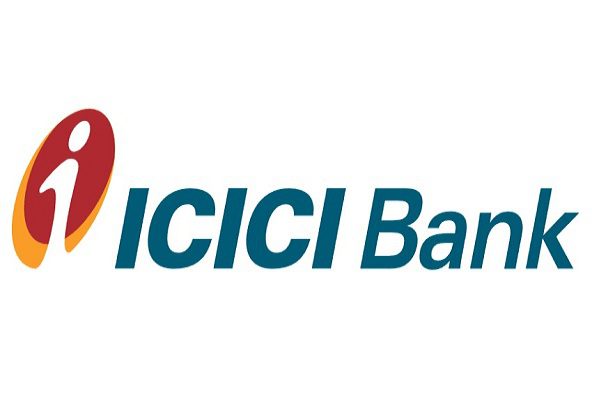Owning a house is often considered a milestone and an investment worth making. The Government of India acknowledges this investment by offering tax benefits on home loans under the Income Tax Act of 1961.
Home loans include principal repayment and interest payments, both of which come with their own set of deductions. Understanding all of these deductions can help save a significant amount on tax payments.
In addition, the recent tax benefit reforms announced by the Union Finance Minister, Nirmala Sitharaman, provide additional deductions for interest payments until 31 March 2024, previously until 31 March 2022.

Deductions on Principal Repayment
Are you tired of paying huge chunks of your hard-earned money as taxes? Owning a house might just be the solution to your problem. Not only does it give you a sense of security, but it also comes with various tax benefits!
Yes, you heard it right! Under Section 80C of the Income Tax Act, the principal repayment portion of the EMI is eligible for a tax deduction of up to Rs 1.5 lakh per financial year.
However, this benefit can only be availed after the construction of the property is complete and it is important to note that if you sell the property within 5 years of possession, this benefit will be reversed.
But wait, there’s more! You can also claim tax deduction under Section 80C for stamp duty and registration fees paid when purchasing the house property. This too must be within the overall limit of Rs 1.5 lakh applied to the principal amount. So, make sure to keep a check on all the expenses that can lower your tax liabilities.
Stamp Duty Deductions also come under this section. By availing this benefit, the homeowner can claim a tax deduction of a maximum amount of up to Rs 1.5 lakh.
However, the deduction can only be claimed in the year the expenses are incurred. So, make sure to keep a track of these expenses and take advantage of the benefits available to you.
Owning a home is not only a dream come true but it also comes with its own set of perks. So, make sure to avail all the benefits you can and save up on your taxes!
Deductions on Interest Paid
As we all know, a home loan comprises of both principal repayment and interest payments. Luckily, you can avail tax deductions on both these components individually under Section 80C and Section 24B of the Income Tax Act respectively.
Under Section 24B, you can claim a tax deduction on interest paid on your home loan, up to a maximum of Rs.2 lakh for a financial year.
However, the construction of your house needs to be completed within 5 years from the end of the financial year in which you took your loan. Also, make sure to claim this deduction only after the construction is completed.
If you’re a first-time homebuyer, then there’s an additional deduction of up to Rs.50,000 under Section 80EE for the interest paid towards your home loan. However, this deduction is only applicable if the loan amount is less than or equal to Rs.35 lakh and the value of the property is equal to or less than Rs.50 lakh.
Introduced in the 2019 Union Budget, Section 80EER deductions allow tax benefits of up to Rs. 50,000 to taxpayers availing home loans between April 1, 2019 and March 31, 2022, and fulfilling certain criteria.
In short, by taking advantage of these deductions, you can maximize your savings and reduce your tax liabilities while fulfilling your dream of owning your own home.
Joint Ownership Benefit
Do you have a joint ownership of a property? Well, that’s fantastic news because you can claim deductions under ‘Section 26 read with Section 24’ of the Income Tax Act.
These deductions can be availed by each of the co-borrowers or joint owners for up to Rs.2,00,000. It’s important to note that the co-borrowers should also be the co-owners of the property.
The provision has been made to encourage joint ownership and make the home-buying process affordable. So, if you haven’t considered owning a property with someone, now seems like an excellent time to explore joint ownership options!
Exemptions on Property Sale
So you’ve decided to sell your property and earn a pretty penny. Did you know you can save on tax if you reinvest the money in another property? Section 54F of the Income Tax Act offers an exemption on capital gains tax if the sale proceeds are used to purchase another property within 2 years.
This exemption is applicable only to long-term capital gains arising from the sale of a residential property.
There’s good news for co-owners as well. Section 56(2)(x) allows both co-owners to claim tax deductions for their share of interest on home loans. But remember, any co-owner who is not a co-borrower is not eligible for this benefit.
So go ahead, sell your property and buy another one – after all, the taxman is on your side!
Additional Deductions
Who doesn’t love a little extra help in saving those hard-earned bucks? Well, you can avail of additional home loan tax benefits under Section 80EEA of the Income Tax Act, 1961.
This benefit is available for all first-time homebuyers availing of a home loan. Individuals can claim deductions of up to Rs 1.5 lakh for interest paid on loans taken to purchase an affordable housing property.
Another benefit that helps reduce the burden on renters is the House Rent Allowance (HRA) exemption under Section 10(14) of the Income Tax Act.
HRA exemption is applicable to salaried individuals who live in a rented house and receive HRA as part of their salary. This exemption is applicable only for the amount of rent paid minus 10% of your income or HRA, whichever is lower.
Conclusion
To sum up, owning a home comes with its own set of tax benefits under the Income Tax Act, 1961. These benefits are provided as a form of relief to borrowers, making home purchase more affordable. It’s important to be aware of these benefits and maximize savings while availing a home loan.
Let us know if you need any help in getting a home loan or you want to understand the benefits in detail.













